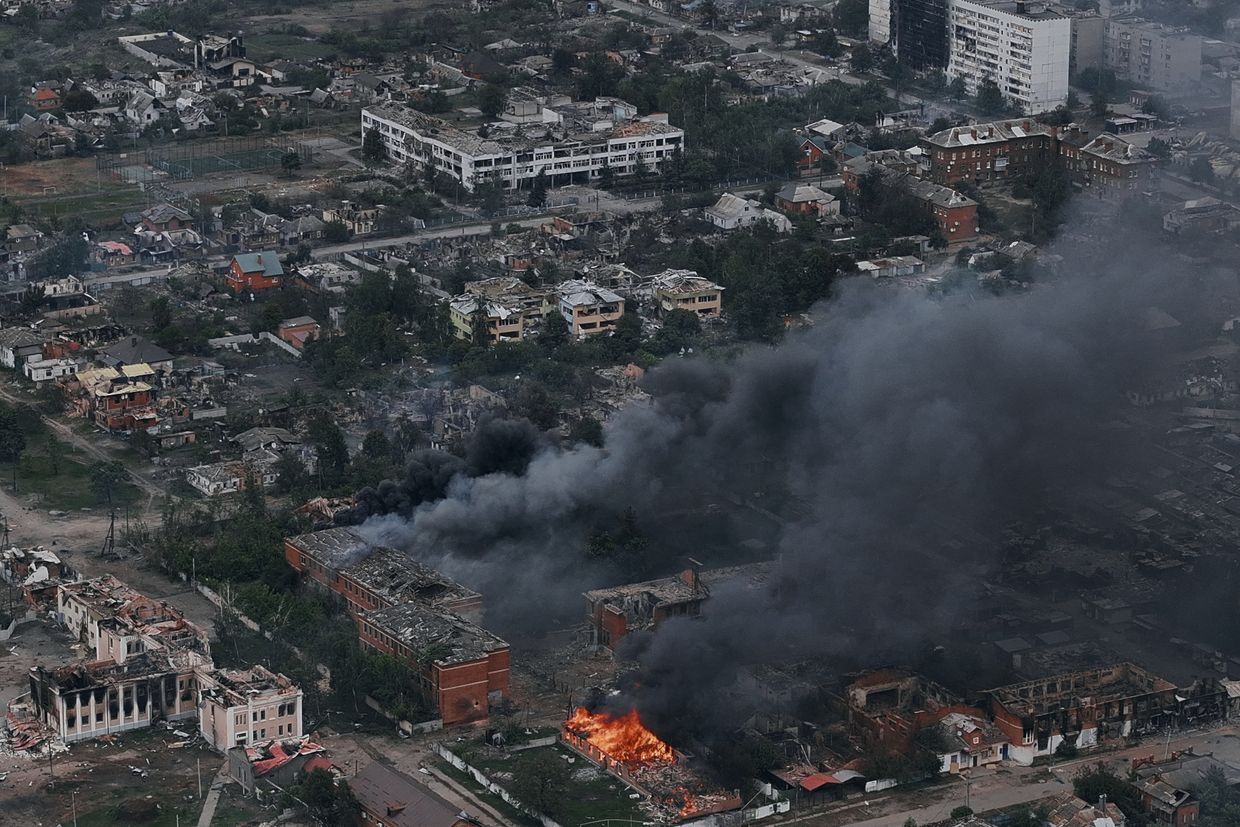Ukraine opens investigation into improper organization of defenses in Kharkiv Oblast

Ukraine's State Bureau of Investigation opened an inquiry into the 125th Brigade and its subordinate units over the lack of preparedness and improper organization of defenses in Kharkiv Oblast, Ukrainska Pravda reported on May 25, citing court documents filed earlier.
Russia launched a new offensive on May 10 in northern Kharkiv Oblast, focusing its efforts in the directions of Lyptsi and Vovchansk, settlements a few miles south of the Russia-Ukraine border.
Moscow's forces advanced as far as 10 kilometers (6 miles) into the region but were halted by the first line of defense, President Volodymyr Zelensky said on May 17.
According to the preliminary investigation detailed in the court document, the 125th Brigade and its subordinate units "did not properly organize the defense of positions on the border of Kharkiv Oblast" due to a "careless attitude to military service."
The resulting Russian offensive "led to the loss of positions, military equipment, and personnel of the units," the court document continued.
The investigators also said that other positions were "abandoned" by Ukrainian defenders.
The investigation will look into the actions of close to 30 commanders and officials from the 125th Brigade and its subordinate units and determine whether there was a causal link between their actions and the subsequent Ukrainian losses.
It is considered a criminal investigation. The document does not specify the potential penalties or punishment if criminal guilt is determined.
Ukrainian lawmakers told Politico earlier in May that the U.S. ban on using Western weapons at the Russian troops massed across the border in Russia contributed to the early successes of the offensive in Kharkiv Oblast.
At the same time, Ukrainian military commander Denys Yaroslavskyi told the BBC in an interview published on May 13 that the Russian breakthrough was the result of Ukrainian defenders' lack of preparedness.
"There was no first line of defense. We saw it. The Russians just walked in. They just walked in, without any mined fields," Yaroslavskyi said.
"Either it was an act of negligence, or corruption. It wasn't a failure. It was a betrayal," he added.














